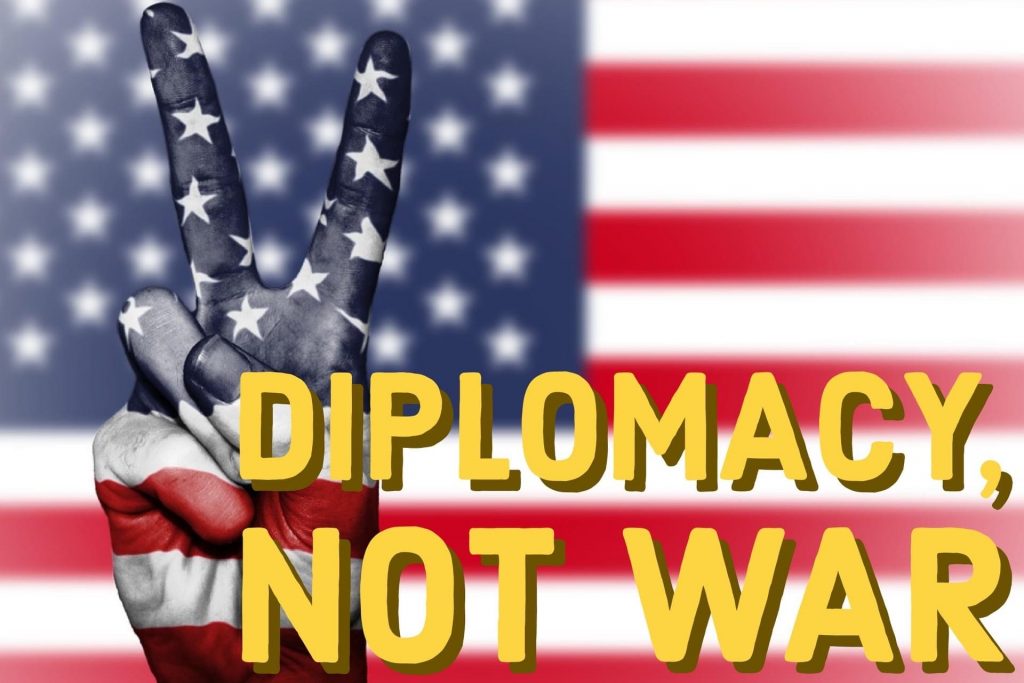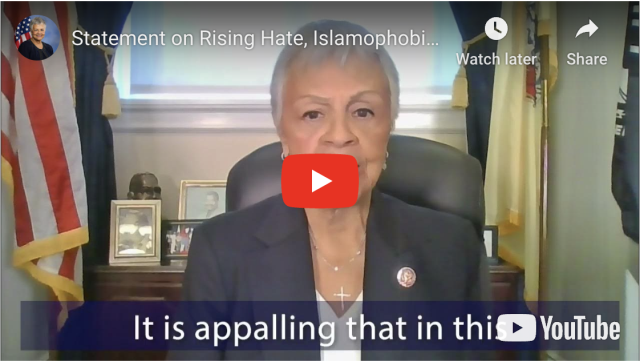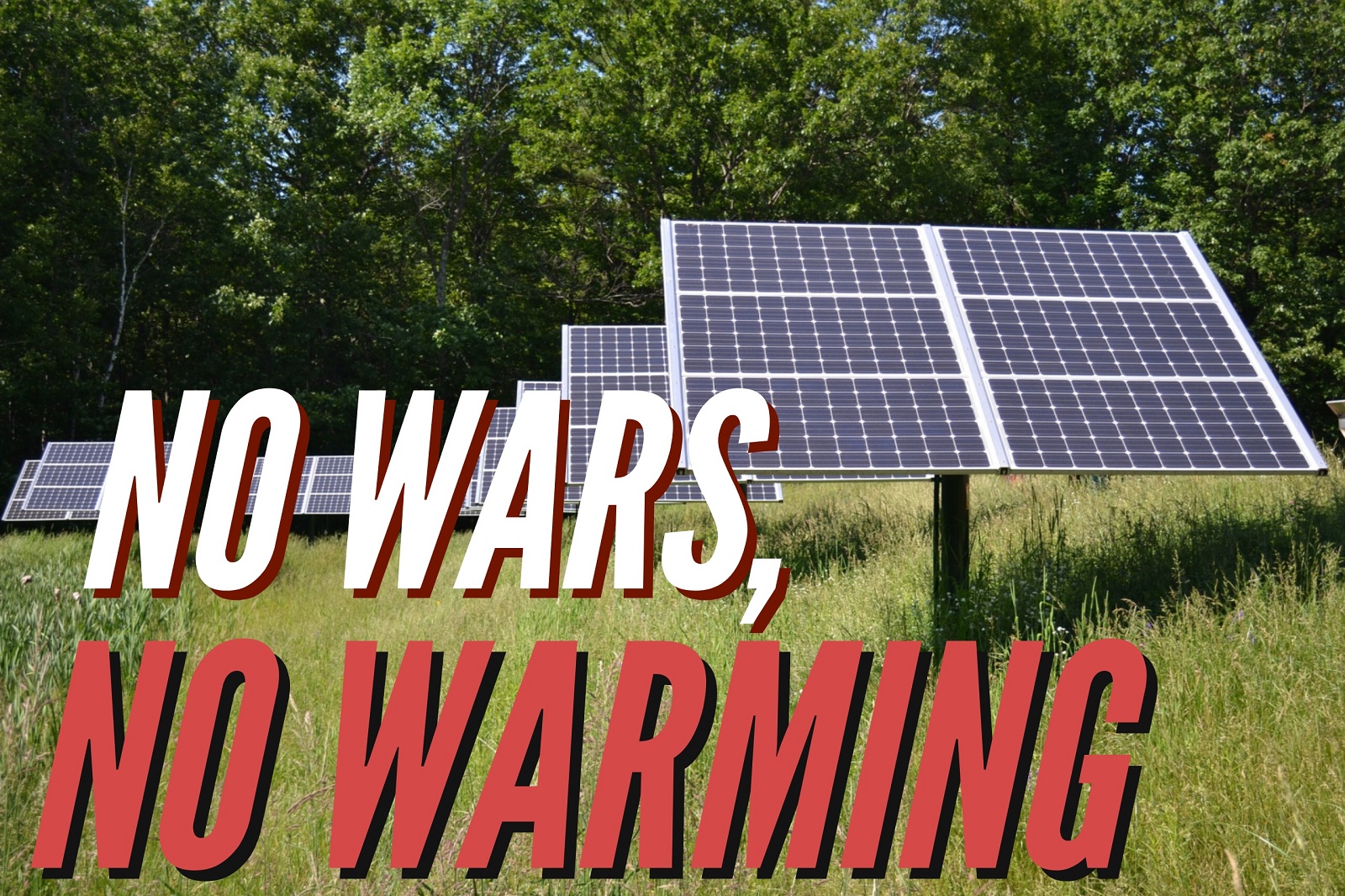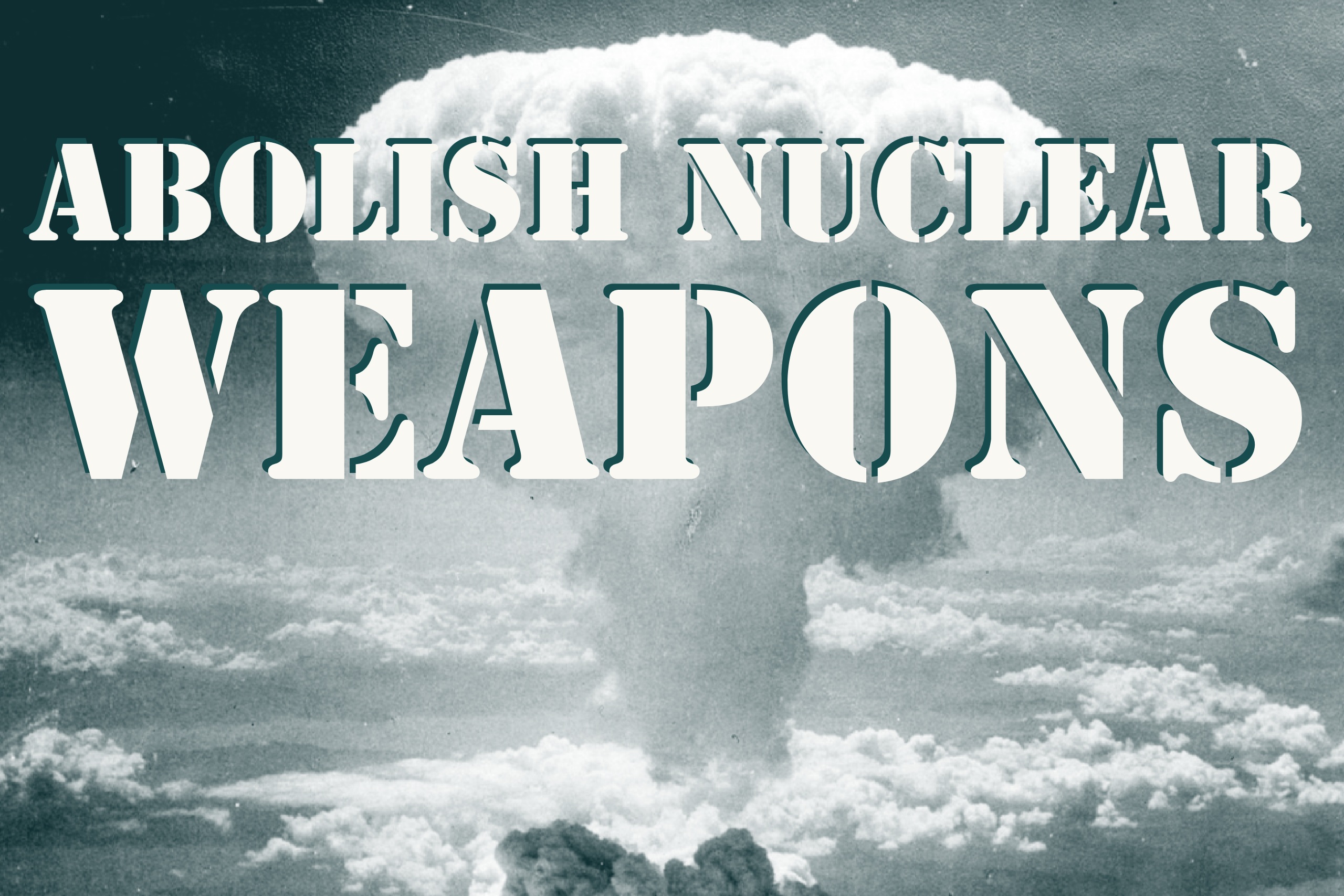
Click the title below to read an article by Dr. Trita Parsi published in TIME Magazine on January 15, 2024. Dr. Parsi was the Keynote Speaker at CFPA's Annual Membership Gathering in June, 2023.
How Biden Can Stop Houthi Missile Attacks—Without Risking War
*****
Click the title below to read an article by Medea Benjamin and Nicolas J. S. Davies published on AntiWar.com on November 14, 2023. Ms. Benjamin spoke at CFPA's 44th Annual Conference for Peace in Princeton on November 12, 2023.
Israeli War Crimes and Propaganda Follow US Blueprint
*****
Please read the excerpt below from Representative Bonnie Watson Coleman's October 31, 2023 E-Update to New Jersey's 12th Congressional District. A video link is also provided.
Rising Hate, Islamophobia and Anti-Semitism
Since the attack on October 7th, I have made it a priority to listen to the experiences and needs of many of our Muslim and Jewish community leaders during this devastating time.
Two things have been made abundantly clear: the bloodshed of innocents caught in this war must stop so that we can focus on facilitating a lasting and peaceful solution; and we must secure the safety of our Muslim and Jewish neighbors right here at home.
It is important for us to remember the toll that this conflict takes - not just on the lives of innocent civilians and children in Gaza and Israel, but on the Muslim and Jewish communities around the world. Communities across the country and right here in New Jersey are hurting.
Every American has the right to worship as they believe without fear of retaliation or discrimination. I am deeply disturbed by the hate that many Americans are facing, rooted in racist, extremist, and bigoted ideology. Hate has no place in America and I will continue to fight for a country in which everyone can worship safely and peacefully.
On October 16th, I joined 12 of my colleagues in calling for a ceasefire in Israel and Palestine and to facilitate the delivery of humanitarian aid to Gaza. The Ceasefire Now resolution can be read here.
As with any conflict, it is civilians who are suffering the most. We must seek an immediate ceasefire and bring relief to the innocent civilians caught in the conflict. The horrendous acts committed by Hamas must not lead us to deny the humanity of innocent people.
*****
Click the title below to read an article by Dr. Trita Parsi published in Responsible Statecraft on October 15, 2023. Dr. Parsi was the Keynote Speaker at CFPA's Annual Membership Gathering in June, 2023.
Biden refuses to talk 'ceasefire' though it could prevent a regional war
*****
Click the title below to read an article by Jeet Heer published in The Nation on September 5, 2023.
Advocates for Negotiations to End the Ukraine War Need to Come Out of the Closet
A brutal and interminable stalemate is forcing a foreign policy reset.
*****
Click the title below to view the full-page advertisement, with three signers who have spoken at CFPA events, published in the New York Times on May 16, 2023.
The U.S. Should Be a Force for Peace in the World
*****
CFPA's Executive Director Rev. Bob Moore's op-ed below was published on Common Dreams on April 9 and August Free Press on April 11, 2023.
Rescind Congressional Authorization for the Use of Military Force in Iraq NOW
Recently, the US Senate voted on a bipartisan basis to rescind the Authorization for the Use of Military Force (AUMF) in Iraq. I applaud Senator Menendez, who is Chair; and Sen. Cory Booker, who is a member of the Senate Foreign Relations Committee. They played a key role in this victory for a more peaceful US foreign policy. President Biden, who voted for that AUMF in 2003, has said he will sign it if it gets to his desk.
At this writing, it is unclear if the US House will post the rescission for a vote and, if so, whether it will pass in that chamber. I fervently hope that it will, so one of the most notorious episodes in US history can be peacefully laid to rest.
If that does happen, it would be a strong parallel to the rescission of the Gulf of Tonkin resolution by the US Senate in 2009. That AUMF in 1964 was also based on deception, and authorized the US military intervention in Vietnam, which became the greatest American debacle of that era.
But far more important, rescinding the Iraq AUMF would repudiate deception and manipulation by any Presidential Administration as happened with the George W. Bush Administration in getting Congress to support it. It would also discourage open-ended Congressional AUMFs with no expiration date, which so far has allowed the one in Iraq to continue for two decades. In short, it would re-establish the Constitutional principle that only Congress can declare war, and repudiate the decades long trend toward an imperial US presidency.
In the lead-up to the US attack on Iraq 20 years ago, as the Executive Director of the Princeton-based Coalition for Peace Action I helped lead intensive organizing to try to prevent it.
We organized numerous demonstrations opposing the Bush Administrations campaign to start a war with Iraq, including joining a demonstration of over 1 million in New York City shortly before the March 19, 2003 invasion. With demonstrations worldwide attended by tens of millions, it was the largest anti-war mobilization in history to try to prevent a war.
We also did intensive lobbying in opposition to the Bush Administration’s AUMF to authorize the war. I remember being in a delegation that met with the late Sen. Frank Lautenberg shortly before the vote, at which he shared that he couldn’t justify sending his own son to that war so had decided to vote against it.
Starting in August 2002, there was an intense mobilization by the Bush Administration with neoconservatives like Vice President Dick Cheney, Defense Secretary Donald Rumsfeld, and National Security Advisor Condoleezza Rice to promote the war based on the deception that it was needed to prevent Iraq from using Weapons of Mass Destruction (WMD).
That culminated with a presentation by Secretary of State Colin Powell to the UN Security Council in February 2003 asserting the same supposed danger. The Council didn’t vote to support it. We put forward compelling evidence that the Bush Administration was deceiving the American people into supporting the war, but it began anyway.
Years later, I had an in-person conversation with the Chief UN Weapons Inspector in Iraq, Dr. Hans Blix. He told me he had met in person with President Bush before he launched the war, and certified to him that Iraq had no nuclear weapons. He said he told him that if he were given just a few more months, he could certify that it also didn’t have Chemical or Biological Weapons. But Blix said Bush simply retorted that he had made the decision, and the US invasion happened shortly after.
Peace loving citizens in the US and across the world organized intensively to end the war. I’m proud that the Coalition for Peace Action played a leading role in that effort in our region. But it wasn’t ended until 2011 when the US finally withdrew its last remaining troops as part of an agreement in 2008, before Bush finished his second term. Over 5,000 US Servicemembers were killed, and tens of thousands wounded—including countless returning US Servicemembers who suffer from PTSD to this day. And up to one million Iraqis died.
The US House needs to complete rescission of this deceptive and extremely damaging AUMF. In January 2020, the Trump Administration invoked it to conduct a drone assassination of a top Iranian military leader who was in Bagdad, creating a grave danger of major war with Iran. Iran did a retaliatory strike against a US base in Iraq. But thankfully, no US troops were killed—though a considerable number were injured.
Wars of choice in Vietnam and Iraq have not led to peaceful American style democracies, as those can’t be imposed from the outside. We need to rescind the AUMF for the Iraq War, as we did with the Tonkin Gulf AUMF that green-lighted the Vietnam War.
*****
The below op-ed submitted by CFPA member and former fighter pilot, Richard Moody, was published in The Trenton Times, The Philadelphia Inquirer, The Star Ledger, and on NJ.com.
Supplying fighter jets to Ukraine is not the answer
Dear Editor,
I am a former fighter pilot with both the Royal Navy and United States Navy. As the first anniversary of the Ukraine war with Russia approaches, I'm extremely worried that fighter aircraft may soon be provided to Ukraine.
Russia appears to be mounting an ever-expanding offensive which will cause a massive increase in the amount of slaughter on both sides. But supplying fighter aircraft to Ukraine would be a major escalation that could trigger World War III.
Aircraft, such as F16 fighter jets, will not just lead to an air-to-air battle. These aircraft are also capable of carrying air-to-ground ordnance which could lead to the increased bombing of innocent civilians on both sides. It may also result in Putin actualizing Russia using tactical nuclear weapons, potentially leading to global nuclear holocaust.
Supplying fighter aircraft to Ukraine could well lead to Putin attacking NATO countries' airfields. An attack on one NATO member is deemed to be an attack on all. I know only too well the massacre which is likely to take place if an aerial onslaught begins and Putin retaliates with a modern-day version of the Blitz.
War is not the answer. Take action for Diplomacy, Not War at peacecoalition.org.
Richard Moody
Lieutenant Commander Royal Navy Retired
*****
CFPA's Executive Director Rev. Bob Moore's op-ed below was submitted to media to be published on or near the February 24, 2023 first anniversary of the Ukraine War.
A Diplomatic Surge is Needed to Prevent Endless War and Reduce the Nuclear Danger in Ukraine
As we approach the one-year anniversary of the Ukraine War, Russia appears to be undertaking a major offensive while Ukraine is planning a counter-offensive. Each side appears to think it can clinch a clear military victory, and force the other side to accept that it can’t win.
But the reality is that a stalemate has been reached that is causing immense suffering on each side, with particularly brutal destruction by Russia of civilian targets in Ukraine, including energy facilities, apartment complexes, hospitals, and even schools. The momentum Ukraine saw up through the fall seems to have dissipated.
Of grave concern to the whole planet is that Russia has a policy that if they perceive an existential threat, they are willing to use so-called tactical nuclear weapons--which are short range for battlefield use, and are less powerful than long range nuclear weapons--to intimidate an opponent to back off and make concessions.
In response to this increased danger of nuclear war, experts at the Bulletin of the Atomic Scientists recently moved its Doomsday Clock forward to 90 seconds to midnight—the closest it has ever been!
Given escalatory steps each side has recently taken, there is an acute threat that the Ukraine War will turn into yet another endless war. As mentioned above, Russia is using long range missiles to destroy civilian infrastructure in blatant violation of international law. The US and Germany have agreed to send advanced tanks to Ukraine, to enable their planned counteroffensive.
This means an increased risk of turning into a NATO-Russia war that would threaten unthinkable destruction throughout Europe, as well as the first use of nuclear weapons in war since 1945. The entire world has a stake in preventing this nightmare scenario.
The previous endless wars in Iraq and Afghanistan ended up causing irreparable harm to large parts of the Middle East, and have been followed by major instability in both those countries. But neither involved the danger of the use of nuclear weapons, despite the false assertion that Iraq supposedly had nuclear weapons.
As long as the Ukraine War is allowed to continue, the danger of the use of nuclear weapons remains acute. The only “off ramp” that will certainly prevent the use of nuclear weapons, which could potentially escalate all the way to global nuclear annihilation, is to engage in a diplomatic surge to rapidly end the war.
The current Chair of the Joint Chiefs of Staff, Gen. Milley, and his predecessor, Admiral Mullen have both proposed such diplomacy.
Some realistic diplomatic approaches are being suggested. For example, the promise of long-term American support for Ukraine’s security could be linked to its willingness to open negotiations. The prospect of some sanctions against Putin’s regime being lifted could be linked to Russia’s willingness to offer concessions Ukraine might accept. Another possibility is for a neutral country to host talks on a Long Term Truce and Steps Toward Peace, with the UN as the facilitator.
We must support urgent and effective diplomacy to bring the year old Ukraine War to a rapid end, save untold lives being lost in another endless war, and protect humanity from the danger of nuclear holocaust.
Those interested in participating in this critical effort to prevent the very real danger of nuclear annihilation are urged to visit peacecoalition.org.
*****
Biden Could Make the World Safer, but He’s Too Afraid of the Politics
Plublished in The New York Times May 9, 2022 By Peter BeinartMr. Beinart is a journalist and commentator who writes frequently about American foreign policy.
President Biden has the chance to avert a nuclear crisis that could push the United States to the brink of war and threaten the coalition he’s built to counter Russia. But he isn’t seizing it for one overriding reason: He fears the political blowback.
Since taking office, Mr. Biden has pledged to re-enter the Iran nuclear deal that Barack Obama signed and Donald Trump junked. That’s vital, since Tehran, freed from the deal’s constraints, has been racing toward the ability to build a nuclear bomb. Now, according to numerous press reports, the United States and Iran have largely agreed on how to revive the agreement. Read more...
*****
CIA director: U.S. can't "take lightly" Russian nuclear threat in Ukraine
Why it matters: So-called "tactical" nuclear weapons are considered "low-yield" only because other nuclear weapons have become unimaginably powerful. Any nuclear strike against Ukraine would be far more powerful and devastating than any conventional attack. Read More...
*****
What the Cuban Missile Crisis can teach us about today’s Ukraine crisis
By Lawrence Wittner
FEBRUARY 7, 2022
Commentators on the current Ukraine crisis have sometimes compared it to the Cuban missile crisis. This is a good comparison―and not only because they both involve a dangerous US-Russian confrontation capable of leading to a nuclear war.
During the 1962 Cuban crisis, the situation was remarkably similar to that in today’s Eastern Europe, although the great power roles were reversed.
In 1962, the Soviet Union had encroached on the US government’s self-defined sphere of influence by installing medium-range nuclear missiles in Cuba, a nation only 90 miles from US. shores. The Cuban government had requested the missiles as a deterrent to a US invasion, an invasion that seemed quite possible given the long history of U.S. intervention in Cuban affairs, as well as the 1961 US-sponsored Bay of Pigs invasion.
The Soviet government was amenable to the request because it wanted to reassure its new Cuban ally of its protection. It also felt that missile deployment would even the nuclear balance, for the US. government had already deployed nuclear missiles in Turkey, on Russia’s border.
From the US government’s standpoint, the fact that the Cuban government had the right to make its own security decisions and that the Soviet government was simply copying US policy in Turkey was of much less significance than its assumption that there could be no compromise when it came to the traditional US sphere of influence in the Caribbean and Latin America. Thus, President John F. Kennedy ordered a US. naval blockade (which he called a “quarantine”) around Cuba and stated that he would not permit the presence of nuclear missiles on the island. To secure the missile removal, he announced, he would not “shrink” from “worldwide nuclear war.”
Eventually, the intense crisis was resolved. Kennedy and Soviet Premier Nikita Khrushchev agreed that the USSR would remove the missiles from Cuba, while Kennedy pledged not to invade Cuba and to remove the US missiles from Turkey.
Unfortunately, the world public came away with a misunderstanding of how the US.-Soviet confrontation had been brought to a peaceful conclusion. The reason was that the US missile removal from Turkey was kept secret. Thus, it appeared that Kennedy, who had taken a hard line publicly, had won a significant Cold War victory over Khrushchev. The popular misunderstanding was encapsulated in Secretary of State Dean Rusk’s comment that the two men had stood “eyeball to eyeball,” and Khrushchev “blinked.”
What really happened, however, as we now know thanks to later revelations by Rusk and Secretary of Defense Robert McNamara, is that Kennedy and Khrushchev recognized, to their mutual dismay, that their two nuclear-armed nations had arrived at an incredibly dangerous impasse and were sliding toward nuclear war. As a result, they did some top secret bargaining that de-escalated the situation. Instead of stationing missiles on the borders of both nations, they simply got rid of them. Instead of warring over the status of Cuba, the U.S. government gave up any idea of invasion. The next year, in an appropriate follow-up, Kennedy and Khrushchev signed the Partial Test Ban Treaty, the world’s first nuclear arms control agreement.
Certainly, de-escalation could be worked out in connection with today’s conflict over Ukraine and Eastern Europe. For example, as many countries of the region have joined NATO or are applying to do so thanks to fear that Russia will resume its domination of their nations, the Russian government could provide them with appropriate security guarantees, such as rejoining the Conventional Armed Forces in Europe Treaty, from which Russia withdrew more than a decade ago. Or the contending nations could revisit the proposals for European Common Security, popularized in the 1980s by Mikhail Gorbachev. At the very least, Russia should withdraw its massive armada, clearly designed for intimidation or invasion, from Ukraine’s borders.
Meanwhile, the US government could adopt its own measures for de-escalation. It could press Ukraine’s government to accept the Minsk formula for regional autonomy in the eastern part of that nation. It could also engage in long-term East-West security meetings that might work out an agreement to defuse tensions in Eastern Europe more generally. Numerous measures are available along these lines, including replacing offensive weapons with defensive weapons in NATO’s East European partners. Nor is there any need to take a hard line on welcoming Ukraine’s NATO membership, as there is no plan to even consider its membership in the foreseeable future.
Third party intervention, most notably by the United Nations, would be particularly useful. After all, it would be far more embarrassing for the US government to accept a proposal by the Russian government, or vice versa, than for them both to accept a proposal made by an outside, and presumably more neutral, party. Furthermore, replacing US and NATO troops with UN forces in East European nations would almost certainly arouse less hostility and desire to intervene by the Russian government.
As the Cuban missile crisis ultimately convinced Kennedy and Khrushchev, in the nuclear era there’s little to be gained―and a great deal to be lost―when great powers continue their centuries-old practices of carving out exclusive spheres of influence and engaging in high-stakes military confrontations.
Surely, we, too, can learn from the Cuban crisis―and must learn from it―if we are to survive.
Dr. Lawrence S. Wittner (www.lawrenceswittner.com/ ) is Professor of History Emeritus at SUNY/Albany and the author of Confronting the Bomb (Stanford University Press).


 Latest Coalition Newsletter
Latest Coalition Newsletter




